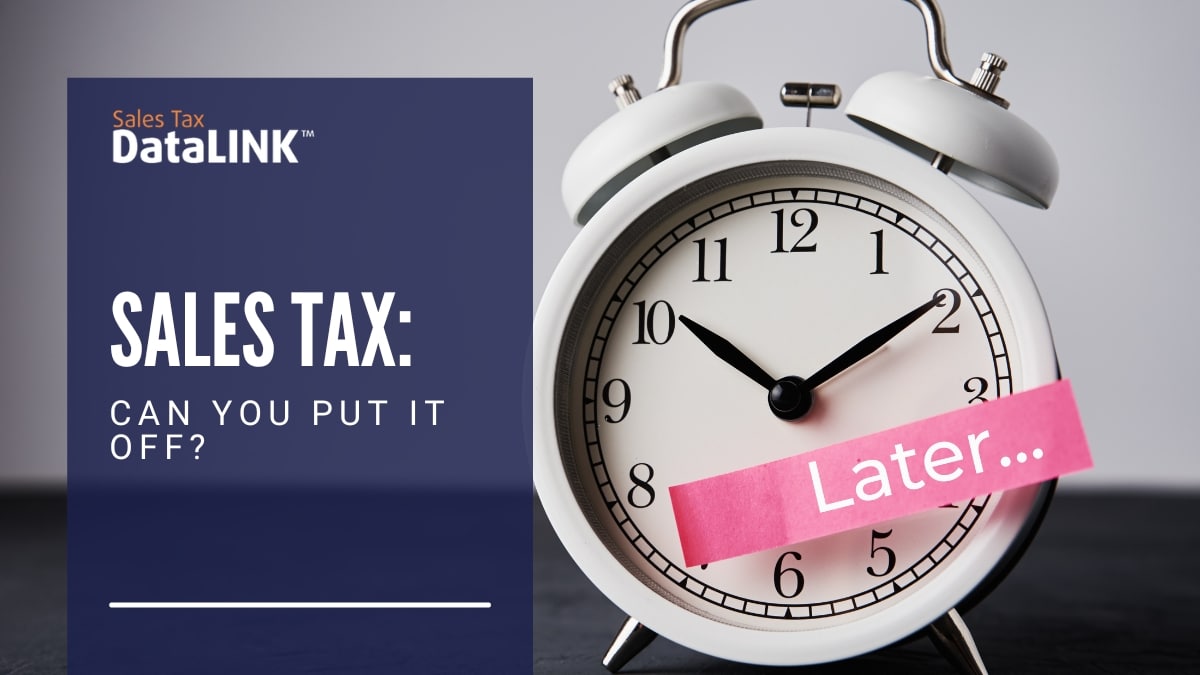The Importance of Understanding Sales Tax Compliance: Why Ignorance Isn’t an Option
You don’t collect sales tax, and you figure you have good reasons. Here are some that we’ve heard:
- You’re not sure whether you’re supposed to collect sales tax or not. This can be the case if you provide services, digital products, or tangible goods that seem essential. Who knows if they are taxable?
- You have mostly wholesale transactions. Very little of your revenue comes from direct-to-consumer sales. Some states set their thresholds based on gross sales, though. If you reach the threshold with your wholesale transactions, you’re responsible for sales tax compliance on your retail sales, however small they may be.
- You figure that you probably don’t meet the sales tax thresholds outside of your home state, and the cost and trouble of figuring out the tax rates and your nexus in every jurisdiction seem to be too high to make it worthwhile.
- You’ll wait till you get in trouble and pay it then. The thinking here is that you can save money by not collecting sales tax until the government points it out to you.
These may be ingenious ideas, but sales tax compliance really isn’t optional. Unless you are absolutely sure that you don’t hear a sales tax obligation in any jurisdiction n where you have sales, you should find out what your sales tax responsibility is. Check taxability, nexus, and tax rates for every state and municipality where you have sales. Once you have a handle on these details, you can determine where you have sales tax responsibilities, and make sure you’re in compliance.
Streamlining Sales Tax Compliance: The Role of Automation and Outsourcing
The Government Accountability Office advised Congress that sales tax requirements are getting out of hand. “GAO found that businesses are devoting substantial amounts of time and resources to multistate remote sales tax compliance;” they said, “that the numerous requirements and variations across taxing jurisdictions made it difficult for businesses to understand their remote sales tax obligations; and that the administrative costs are borne in large part by businesses collecting from purchasers on behalf of the taxing jurisdictions.”
Certainly, there are costs involved. The Supreme Court, in their Wayfair decision which allowed states to require sales tax compliance of remote sellers, acknowledged these problems. “Eventually,” they wrote, “software that is available at a reasonable cost may make it easier for small businesses to cope with these problems.”
Software that automates the process, or outsourcing sales tax compliance, is indeed the solution to the problems. There are costs involved, but they pale compared with the costs of a sales tax audit. If your company fails to collect and remit sales tax, a state can require you to pay the sales tax you failed to collect — with penalties and interest — from your own pocket.
Expert Sales Tax Advisory: Assessing Nexus, Taxability, and Compliance Solutions
So maybe you haven’t been collecting sales tax. We offer sales tax advisory, and a company like ours can audit your nexus and taxability situation to let you know where you are vulnerable. Once you know where you should be collecting sales tax, we can help you register, determine the relevant tax rates, and calculate your sales tax responsibilities.
We can even help you file.
Sometimes, a voluntary disclosure agreement can save you money as you get into compliance. Having all the facts can make the process more manageable.
Sales Tax DataLINK can help
Sales Tax DataLINK can help with every step along the way, from identifying the jurisdictions where you have sales tax responsibility to calculating, reporting, and filing. We offer expert sales tax advisory. We also offer complete sales tax outsourcing services. Call now! 479-715-4275




